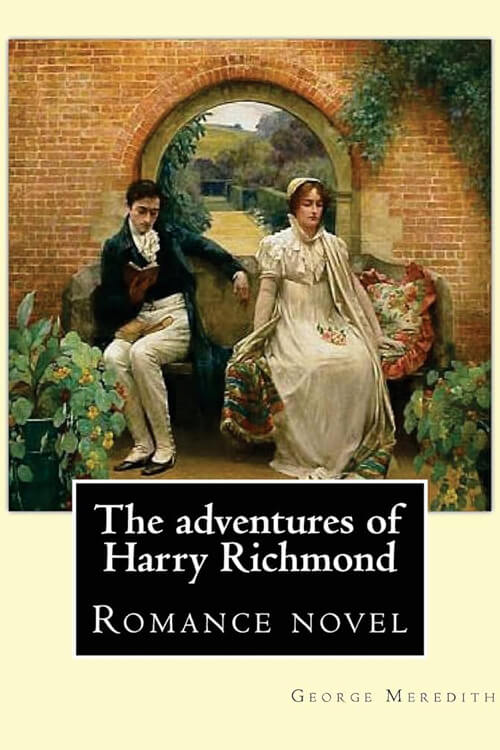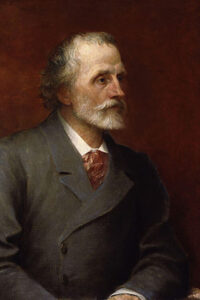
The Adventures of Harry Richmond
One midnight of a winter month the sleepers in Riversley Grange were awakened by a ringing of the outer bell and blows upon the great hall-doors. Squire Beltham was master there: the other members of the household were, his daughter Dorothy Beltham; a married daughter Mrs. Richmond; Benjamin Sewis, an old half-caste butler; various domestic servants; and a little boy, christened Harry Lepel Richmond, the squire’s grandson. Riversley Grange lay in a rich watered hollow of the Hampshire heath-country; a lonely circle of enclosed brook and pasture, within view of some of its dependent farms, but out of hail of them or any dwelling except the stables and the head-gardener’s cottage. Traditions of audacious highwaymen, together with the gloomy surrounding fir scenery, kept it alive to fears of solitude and the night; and there was that in the determined violence of the knocks and repeated bell-peals that assured all those who had ever listened in the servants’ hall to prognostications of a possible night attack, that the robbers had come at last most awfully. A crowd of maids gathered along the upper corridor of the main body of the building: two or three footmen hung lower down, bold in attitude. Suddenly the noise ended, and soon after the voice of old Sewis commanded them to scatter away to their beds; whereupon the footmen took agile leaps to the post of danger, while the women, in whose bosoms intense curiosity now supplanted terror, proceeded to a vacant room overlooking the front entrance, and spied from the window.
Meanwhile, Sewis stood by his master’s bedside. The squire was a hunter, of the old sort: a hard rider, deep drinker, and heavy slumberer. Before venturing to shake his arm Sewis struck a light and flashed it over the squire’s eyelids to make the task of rousing him easier. At the first touch, the squire sprang up, swearing by his Lord Harry he had just dreamed of fire, and muttering of buckets.
‘Sewis! You’re the man, are you: where has it broken out?’
‘No, sir; no fire,’ said Sewis; ‘you be cool, sir.’
Read or download Book
George Meredith
George Meredith OM (12 February 1828 – 18 May 1909) was an English novelist and poet of the Victorian era. At first, his focus was poetry, influenced by John Keats among others, but Meredith gradually established a reputation as a novelist. The Ordeal of Richard Feverel (1859) briefly scandalized Victorian literary circles. Of his later novels, the most enduring is The Egoist (1879), though in his lifetime his greatest success was Diana of the Crossways (1885). His novels were innovative in their attention to characters’ psychology and also portrayed social change. His style, in both poetry and prose, was noted for its syntactic complexity; Oscar Wilde likened it to “chaos illumined by brilliant flashes of lightning”. Meredith was an encourager of other novelists, as well as an influence on them; among those to benefit were Robert Louis Stevenson and George Gissing. Meredith was nominated for the Nobel Prize in Literature seven times.
Life
Meredith was born at 73 High Street, Portsmouth, Hampshire, England, the only child of Augustus Urmston Meredith and his wife Jane Eliza (née Macnamara). The name Meredith is Welsh, and he would describe himself as “half Irish and half Welsh” (on his mother’s and father’s sides, respectively). He was proud of his Welsh origins, and such pride is evident in his novels. His biographer Lionel Stevenson explains that Meredith’s paternal grandfather, Melchizedek, would sometimes “boast eloquently of his princely forebears”, but “between his immediate forebears and the legendary Welsh princes of seven centuries before, the history of the family remains obscure.”
Augustus Meredith was, as Melchizedek Meredith had been before him, a naval outfitter, and among his employees was James Watson Gieve. Jane died when her son was five, and the outfitting business failed, with Augustus declared bankrupt in November 1838. He moved to London and in July 1839 remarried – his second wife being the family’s former housekeeper, Matilda Buckett.
George Meredith was educated in Southsea until 1840, when a legacy from his mother’s sister, Anna, made it possible for him to attend a boarding school in Lowestoft, Suffolk. In August 1842 he was sent to the Moravian School in Neuwied, near Coblenz, where he remained until the spring of 1844; Lionel Stevenson argues that the experience instilled his “impatience towards sham and servility, contempt for conceit, admiration for the courage, and devotion to candid and rational forthrightness”.
By 1845 it was planned that he would be articled to a solicitor, Richard Charnock of Paternoster Row, and he was duly articled in February 1846, shortly before his eighteenth birthday. But he abandoned the legal profession for journalism and poetry, taking lodgings in Pimlico.
Drawn to literary circles, Meredith collaborated with Edward Gryffydh Peacock, son of Thomas Love Peacock, in publishing a privately circulated literary magazine, the Monthly Observer. One of the contributors was Edward Peacock’s sister Mary Ellen Nicolls. Described by the artist William Holman Hunt as “a dashing type of horsewoman who attracted much notice”, Mary was the widow of a naval officer, Lieutenant Edward Nicolls, who in 1844 had drowned while attempting to rescue a man under his command.
In August 1849 Meredith married Mary, at St George’s, Hanover Square. At the time of the marriage, Meredith was 21 years old; she was 28 and had a five-year-old daughter by Lieutenant Nicolls (born after his death). Augustus Meredith was not present at the wedding, having emigrated to South Africa in April of that year.






